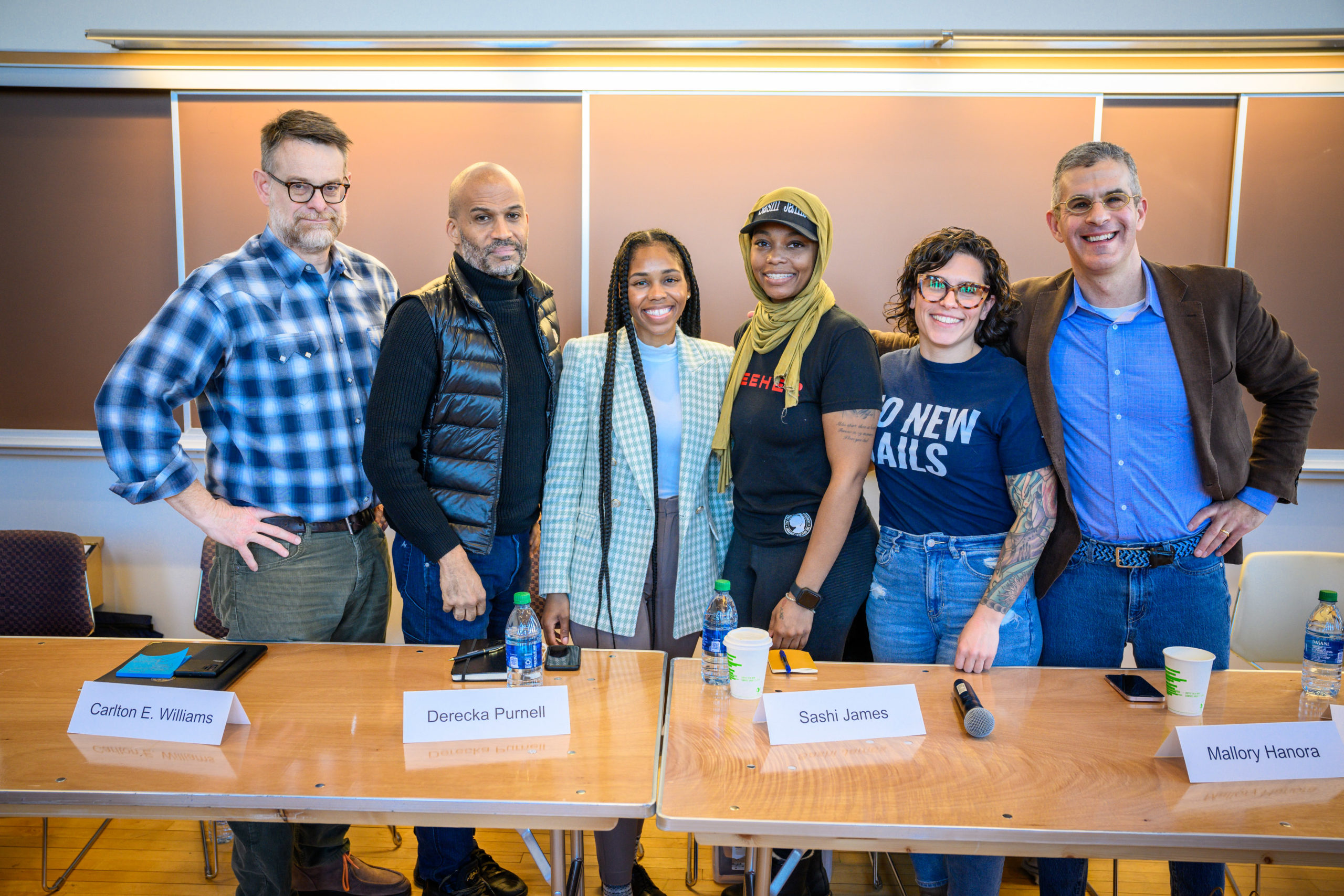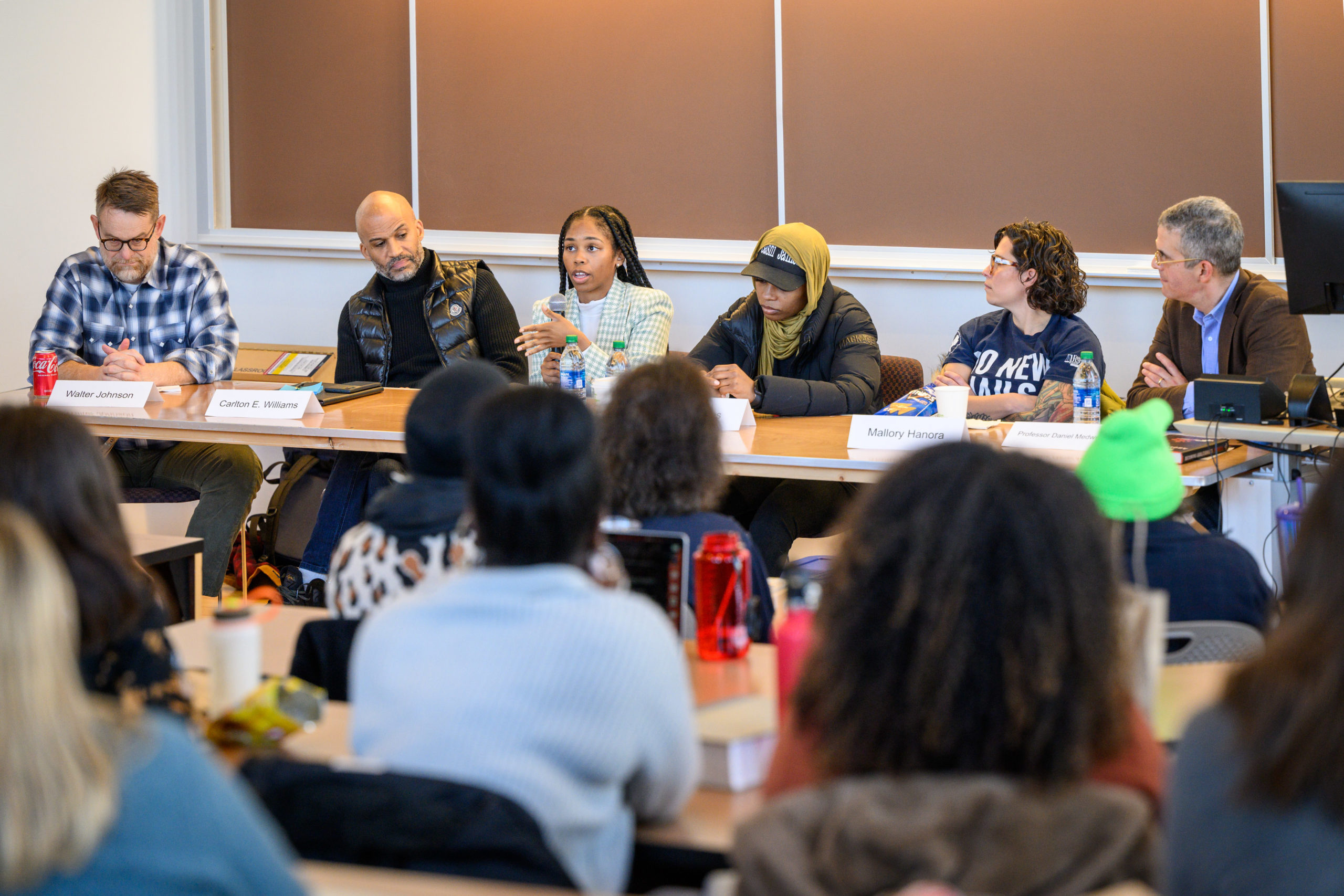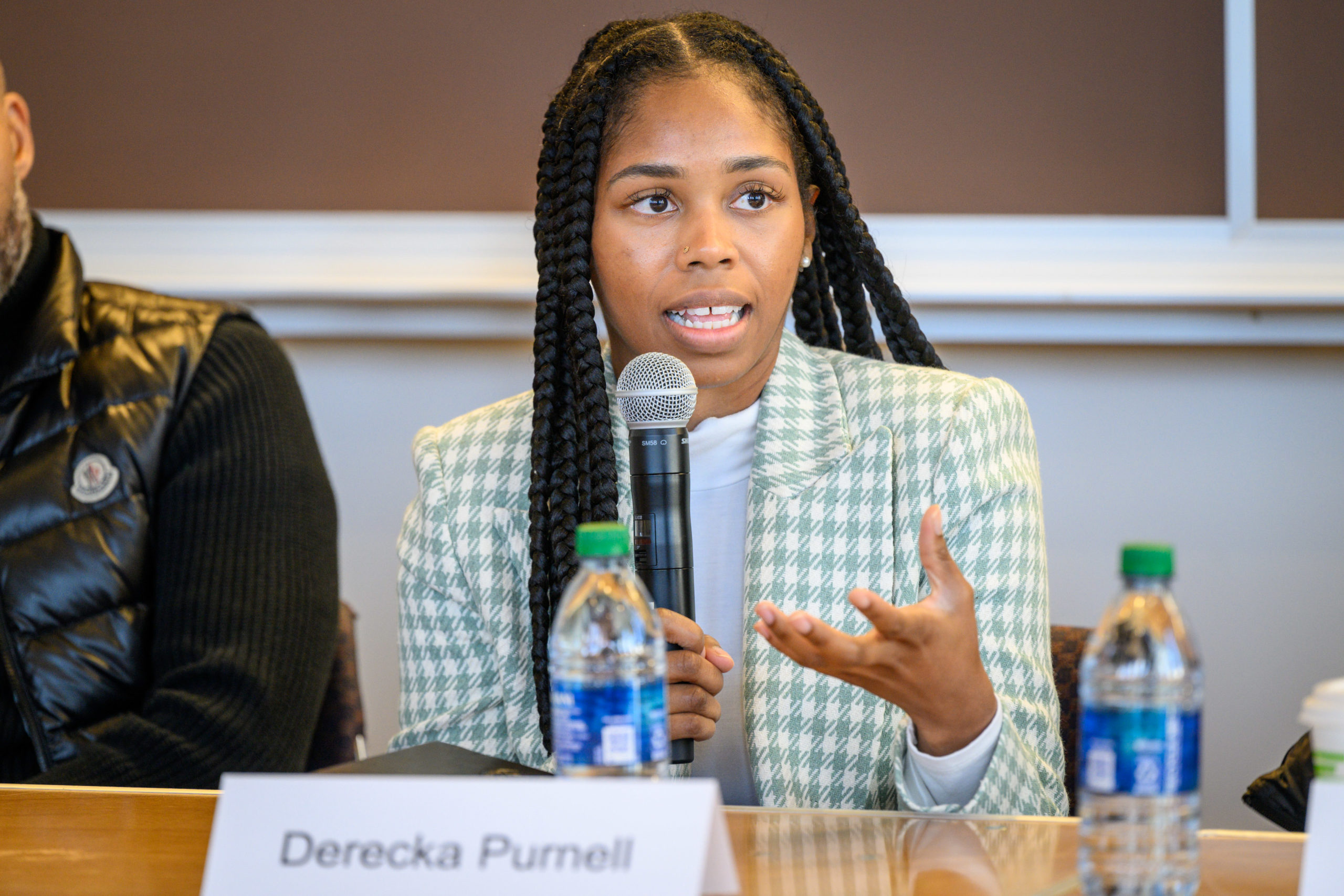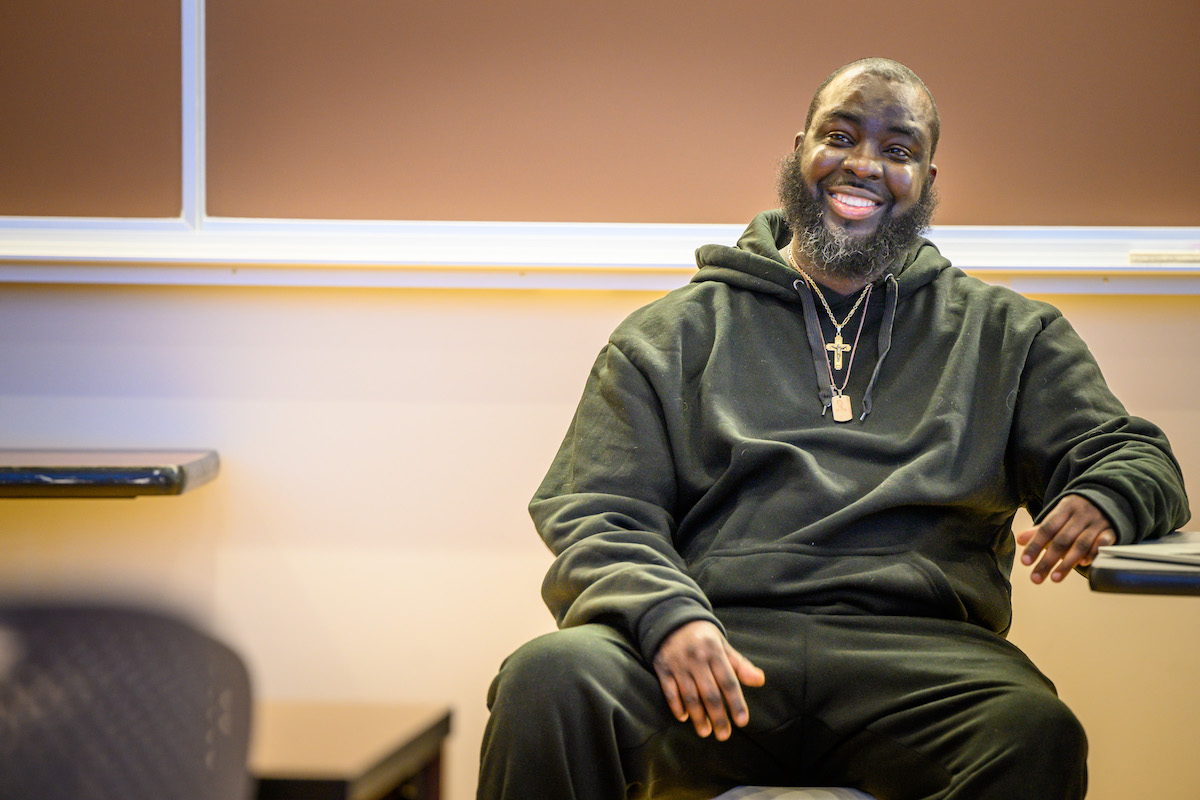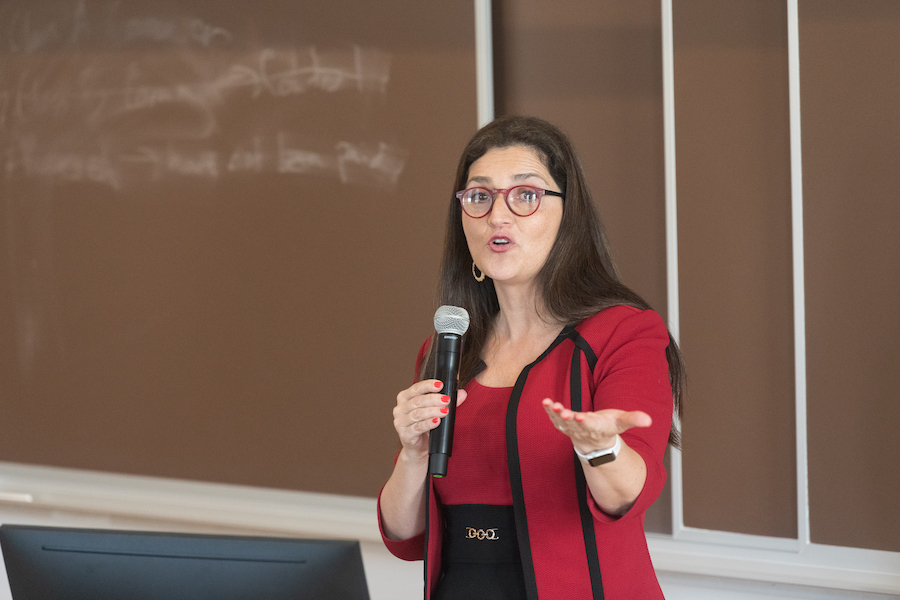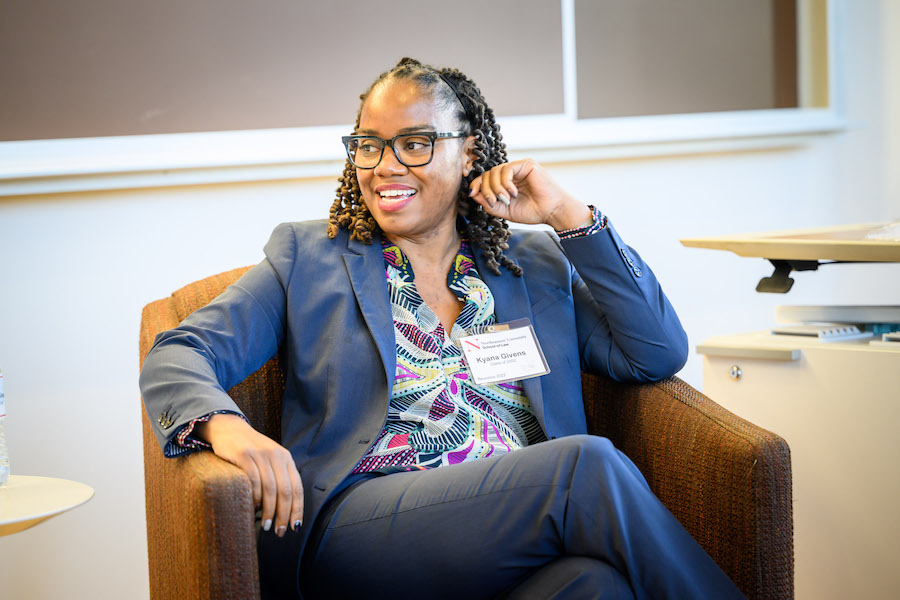CPIAC Projects
CPIAC’s Cradle-to-Prison (C2P) project hosted a half-day conference in November, 2019, that brought together advocates and organizers interested in dismantling the pipeline.
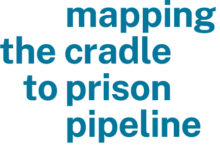 Dismantling the Cradle-to-Prison Pipeline
Dismantling the Cradle-to-Prison Pipeline
CPIAC's flagship research initiative, the Cradle-to-Prison Pipeline Project (C2P Project), launched in 2019 with a Northeastern University Tier 1 grant, is a collaboration among CPIAC; Northeastern University’s College of Arts, Media and Design (CAMD); and its Department of Sociology and Anthropology at the College of Social Sciences and Humanities. The project is building a holistic model of contributors to mass incarceration in Massachusetts to identify and validate policy interventions. It will also provide a model for other states while connecting stakeholders to facilitate identification of collective interest and scalable solutions. Beyond Northeastern University, the project is strengthened by engagement and collaboration with people currently and formerly incarcerated, practicing lawyers, policy advocates, nonprofit organizations and people impacted by the family regulation system.
Since its launch, the C2P Project’s work has highlighted perspectives born of lived experience. Among its endeavors have been a project in collaboration with formerly incarcerated people and the nonprofit Everyday Boston, resulting in video narratives by formerly incarcerated people sharing their experiences; a survey, led by Professor Stephanie Hartung, of hundreds of currently incarcerated people in Massachusetts jails and prisons about their youth experiences with systems that contribute to incarceration and their views on needed changes — with results of phase 1 published in “Criminalizing a Rough Life: A Survey of Systems Involvement Among Incarcerated People in Massachusetts”; creation of a website, cradle2prison.info, housing resources for the public, advocates and policymakers; and numerous student research projects — many in collaboration with Northeastern Law’s Legal Skills in Social Context (LSSC) program — on topics such as school discipline, police in schools, the family regulation system, houselessness and others. The C2P project also organizes events to gather advocates and inform the public around issues of concern — including, most recently, a collaborative event with Citizens for Juvenile Justice and CAMD School of Journalism initiative The Family Project, entitled, “I Am Not a Bad Parent,” featuring parents involved with the family regulation system and a premiere of CAMD journalism student documentaries.
In 2022, the project was awarded a Northeastern Impact Engine Grant to expand its work supporting advocates dedicated to dismantling the cradle-to-prison pipeline. Numerous gaps in data collected or reported by relevant public agencies are a recurrent obstacle to advocates and policymakers advancing effective solutions to counter incarceration's contributors. The Impact Engine Grant will specifically support the project to build and pilot an online data tool as a one-stop, interactive resource for advocates addressing this hurdle.
“CPIAC is thrilled to be able to channel Impact Engine support into a cutting-edge tool to empower advocates,” explained Professor Lucy Williams, faculty director of CPIAC. “With this grant, the Cradle-to-Prison Pipeline Project will address an urgent need for data access, and in so doing will continue to advance advocates’ critical work dismantling the systems that feed incarceration.”
Learn more at the project website, cradle2prison.info. Please email cpiac@northeastern.edu if you would like to get involved.
Resources:
Visit www.cradle2prison.info/resources
See Something, Frame Something Project
Video and Photo Galleries
Past Projects
-
Long waits at the polls and other voting challenges can undermine the right to vote.
With crucial national and local elections regularly being decided by razor-thin margins, unequal allocation of electoral resources and subsequent voter disenfranchisement are one of this era’s most pressing civil rights issues. The Northeastern University Time to Vote project was a research collaboration among Northeastern Law's Center for Public Interest Advocacy and Collaboration (CPIAC), Civil Rights and Restorative Justice Project and NuLawLab; Northeastern University's College of Social Sciences and Humanities (Dukakis Center for Urban and Regional Policy and Political Science Department), College of Arts, Media and Design and Charlotte, North Carolina campus; and partner organizations across the U.S. The project gathered data about voters’ wait times and other obstacles to voting access to assist efforts for equitable electoral resource distribution.
Voting rights advocates have long pointed to disparities in wait times and voting access, including persistent racial disparities. In response to a gap in precise quantitative data to better evidence these obstacles and disparities, the Time to Vote project developed a smartphone-based app that voters can use to measure the time they spend waiting to vote and provide information about other voting challenges they may have encountered. The project also conducted a survey of voters in the 2020 federal election which, notably, revealed significant differences in voters’ willingness to wait based on race and gender — with Black women willing to wait longest.
Read coverage of the Time to Vote Project’s survey findings in The Washington Post.

